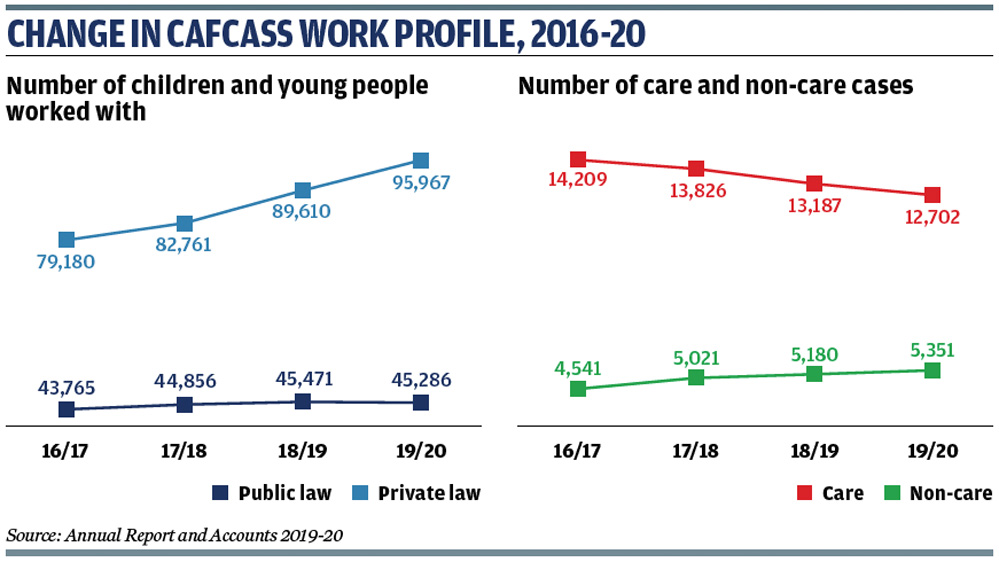
The Children and Family Court Advisory and Support Service (Cafcass) represents children in family court cases.
These include care proceedings, or public law cases, private law cases where separating parents cannot agree on arrangements for their children, and adoption spanning both public and private law.
It is the largest employer of qualified social workers in England, operating out of 33 offices across the country and supporting more than 140,000 children each year (see graphic).

Cafcass is inspected by Ofsted. In April, the regulator launched a new regime designed to bring Cafcass inspections in line with Ofsted's other inspections of social care.
Register Now to Continue Reading
Thank you for visiting Children & Young People Now and making use of our archive of more than 60,000 expert features, topics hubs, case studies and policy updates. Why not register today and enjoy the following great benefits:
What's Included
-
Free access to 4 subscriber-only articles per month
-
Email newsletter providing advice and guidance across the sector
Already have an account? Sign in here

